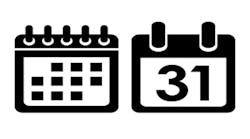Thursday Troubleshooter: Pay practices in dental office are becoming unfair
Do you have a tough issue in your dental office that you would like addressed? Each week the experts on Team Troubleshooter will tackle those issues and provide you with answers. Send questions to [email protected].
QUESTION: Is it legal to pay dental staff employees by the day? I ask this because I’ve worked at an office like this for 18 years. When I was hired I was told I was paid a certain wage by the hour. Then I learned that there was not a timesheet to record clock time into and out of work. I also learned that a timesheet was not needed since we’re only paid for an eight-hour day. We are paid by the day, but it is not considered salary. If we take half of a day off to go to a doctor appointment, then we are only paid for half a day.
Since the practice went digital with patient records over a year ago, it takes longer to enter clinical notes, medical histories, charting, and scheduling. I find myself working into my lunch hour and staying after work to complete clinical notes and new medical histories and updates. I feel like I’m donating my time. I’m a hygienist who is valued by my patients. They appreciate my thoroughness and gentleness while completing a prophylaxis or scaling and root planing. I feel the only way I can get out of the office without working longer than eight hours is to go against my values of providing great dental care to my patients by hurrying through treatment.
The doctor does not want to have a time clock because those who leave early (whether it’s 20 or 30 minutes) need their money too. However, those who work over eight hours are not compensated. I’ve tried to find an answer on the US Department of Labor as well as the Illinois Department of Labor websites. I hope you are able to shed some light on my question.
ANSWER FROM REBECCA BOARTFIELD, SHRM-SCP, Bent Ericksen & Associates:
In short, yes, it is absolutely legal to compensate non-exempt employees on a daily rate, and most dental hygienists (as well as other dental staff) are in the non-exempt category. Non-exempt employees are to be paid at least minimum wage for all hours worked and are eligible for time and one-half for all overtime hours, which in your case, in Illinois, means over 40 hours per week. The method of compensation has no bearing on these rules. Compensation can be in the form of a salary, daily wage, or hourly amount.
Typically, for a daily rate of pay, the employer and employee have an understanding or agreement about what a “day” means, i.e., six hours, eight hours, 10 hours, etc. It is whatever the employer and employee agree on. It sounds like your daily rate is based on eight-hour days. If that is the agreement, then when you work more than eight hours, your daily rate would be increased to reflect the extra hours worked. The reverse is also true. If you only work six hours, you would not be entitled to the agreed upon full day’s pay, you would only be entitled to six hours of pay.
Given the need to ensure proper payment for all hours worked, all employers should have employees complete time records. In fact, the laws require as much for nonexempt employees. It also sounds like it would be good for you and your employer to have a solutions-oriented conversation that supports the practice’s commitment to patient care as well as your time, hours, and compensation. Good luck!
RECENT THURSDAY TROUBLESHOOTERS:
Is your dental practice legal in these 2 areas?
Is it legal to double the workload of this RDH?
This dental staff can't agree on billing for polishing
Send your questions for the experts to answer. Responses will come from various consultants, many of whom are associated with Speaking Consulting Network, Academy of Dental Management Consultants, Dental Consultant Connection, and other expert dental support and human resources organizations. Their members take turns fielding your questions on DentistryIQ, because they are very familiar with addressing the tough issues. Hey, it's their job.
Send your questions to [email protected]. All inquiries will be answered anonymously every Thursday here on DIQ.
